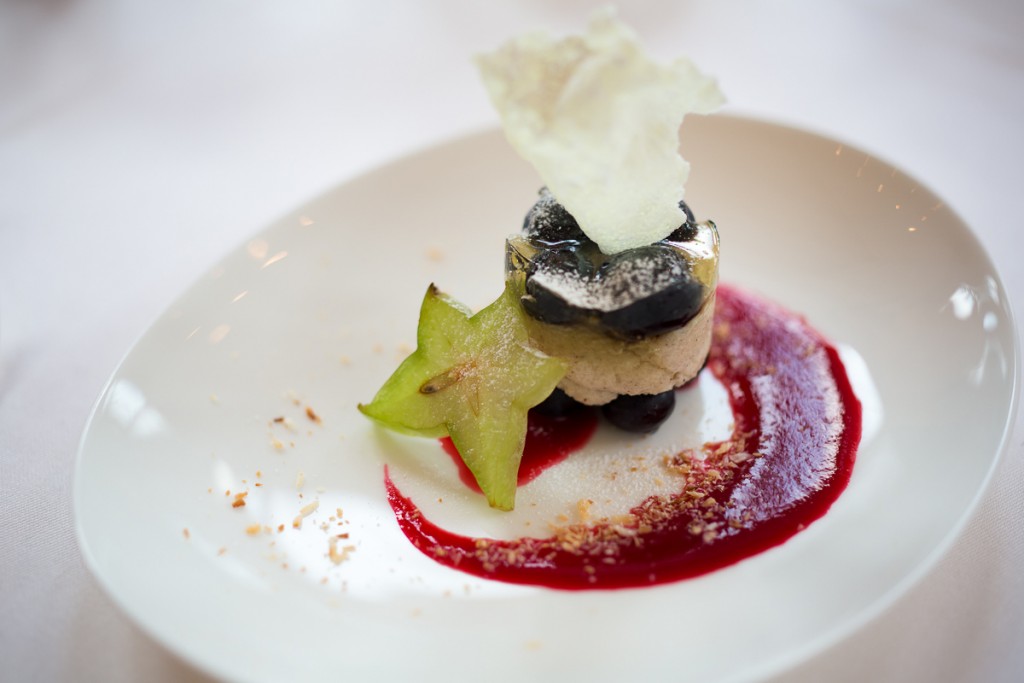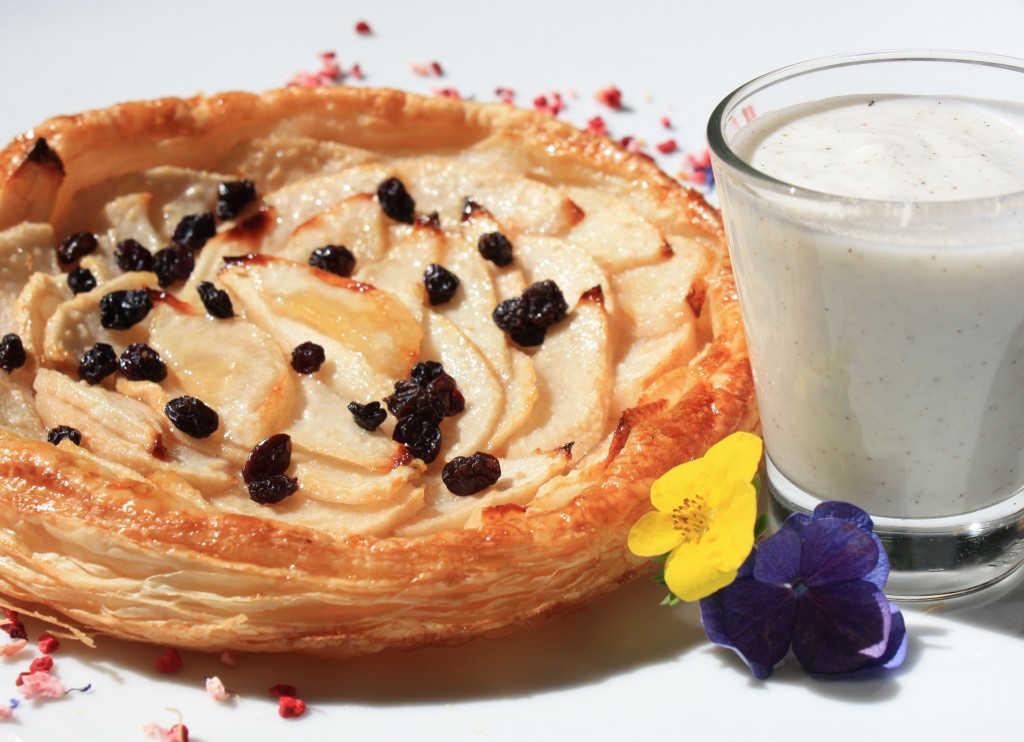Over the years we’ve tried them all: fat-free, carbohydrate-free, protein-free. Raw food; diet food; no food. We’ve tried counting calories, combining foods and keeping them strictly apart. Yet still we pile on the pounds.
If you really want to lose weight and, more to the point, keep it lost, then the answer may not lie in the newest diet. It might just be found in the oldest weight loss regime on the earth: ayurveda.
As I explain in my book Live Well – ayurveda is the ancient Indian system of mind-body medicine, which dates back 5,000 years. According to ayurveda, there are three types of bio-energy (known as doshas) that control our bodies – vata (predominantly air), pitta (fire and water) and kapha (water and earth). The theory is complicated but all you really need to know is that when these bio-energies are in balance, we enjoy good health and keep at our optimum weight. However when they fall out of balance, so too does our weight. While it’s possible for any imbalance to cause a weight problem, most commonly the culprit is unbalanced kapha. When this happens we have literally too much heaviness within our systems. The result is simple: weight gain.
Fortunately the ancient physicians worked out how to pacify each dosha if it became out of balance. They did this using predominantly diet but also exercise, massage, breathing exercises, meditation and simple lifestyle changes. It is incredibly simple – no weighing, no measuring, no calorie-counting. It doesn’t involve depriving yourself or putting yourself on a starvation diet – you can eat totally delicious food and still lose weight.
At the Parkschlosschen ayurvedic spa in Germany patients follow the 5,000 year old diet with excellent results. On my last trip I shed five pounds in three days (while eating five course lunches). All you have to do is avoid certain foods, bulk up on others and adopt a few simple lifestyle changes (some incredibly obvious; others quite unusual – such as eating your pudding before your main meal).
They ease bodies into balance with a combination of delicious food, gentle yoga and some of the most incredible body treatments going. But, if you can’t make it out to Germany, you can still follow their rules at home.
First principles
‘Food is always a source of pleasure and enjoyment in ayurveda,’ says ayurvedic chef Eckhard Fischer. This is no hair-shirt regime. However certain foods and drinks aggravate kapha and should be cut down or avoided while you are balancing your body (you can reintroduce them carefully once you reach your ideal weight). Generally speaking your diet should consist of light warm dry meals: unlike many diets, ayurveda doesn’t tout loads of raw foods and endless salads as cold raw vegetables (and fruit) is considered hard to digest. If you eat a salad, warm it up with a spicy gingery dressing. Equally heavy sauces won’t do you any favours. All drinks should also be warm (ayurveda swears by drinking hot or warm water and herbal teas to loosen mucus and toxins in the body). Keep a flask of hot water on your desk and sip throughout the day.
Never eat huge meals – keep your meals small and eat very slowly and mindfully, chewing well and really savouring your food. So many of us eat unconsciously – barely noticing our food and not realising we are full until we are bloated. Don’t eat late at night as this is a sure-fire way to aggravate kapha and pile on weight: make lunch your largest meal and stick to a light but filling soup in the evening.
Pungent, bitter and astringent tastes all soothe kapha while sweet, sour and salty tastes aggravate it. Grains such as wheat and rice contain a lot of starch and sugar and so aggravate kapha – but you can eat your fill of ‘ancient’ grains such as millet, quinoa, corn and buckwheat. Equally dairy produce is too heavy and rich for the kapha diet so you need to avoid this (or just have a little goat’s cheese as a treat). The lists show you how wide a selection of foods you can choose. Fischer is keen to point out that no foods are ‘forbidden’ – but that the more kapha-aggravating foods you eat, the longer your weight-loss will take.
AVOID
• Cold water and iced drinks. Cold raw food (unless with a spicy dressing).
• Fatty fried foods
• Sweet and sour fruit (avocado, bananas, pineapple, oranges, melon, plums, prunes, mango, coconut, apricot).
• Sweet vegetables (parsnips, sweet potatoes, pumpkin and squash)
• Wheat, rice, cooked oats
• Kidney beans, soya beans and products, tofu, miso
• Butter, cheese, cow’s milk, yoghurt, ice cream
• Red meat (apart from venison), dark meat (chicken, duck, turkey), seafood and salt water fish.
• Ketchup and sweet pickles and chutneys, soy sauce, vinegar, mayonnaise, salt.
• Alcohol, in particular beer and sweet wine.
• Caffeinated and carbonated drinks
• Sugar, maple syrup
• Nuts
TAKE
• hot water (sip it through the day)
• All fruit and vegetables not on the AVOID list (green leafy vegetables are wonderful)
• All grains not on the AVOID list (ie millet, barley, buckwheat, polenta, quinoa, wild rice, rye, corn)
• All pulses and beans not on the AVOID list (ie chickpeas, lentils, adzuki beans, black beans, pinto beans etc).
• A little buttermilk or goat’s milk/cheese (but only a small amount), ghee (small amounts).
• Chicken and turkey (white meat only); rabbit, eggs, freshwater fish, venison, prawns.
• All spices are good for kapha, especially pungent and sharp spices such as black pepper, ginger etc. Herbs are also fine – especially coriander leaves and sprouts.
• Aloe vera juice, ‘grain’ coffee (No-Caff, Barleycup etc), herb teas (except rosehip and marshmallow)
• Honey.
• Sunflower and pumpkin seeds.
• Mustard, corn and sesame oil (in small amounts).
TIPS
• When you feel hungry drink a mug of hot water with a teaspoon of honey and ten drops of lime juice added.
• Try not to snack between meals – if you feel very hungry you can nibble celery or carrot sticks. Fischer also suggests plain popcorn as it’s light and warming.
• Use plenty of spices in your cooking – cumin, coriander, fennel, cardamom, ginger, cinnamon and garam masala will all help to improve your digestion.
• Before each meal, drink a cup of ginger tea to stimulate agni, the digestive fire. Alternatively, chew a slice of fresh ginger root before eating.
• Have your pudding first! Eating something sweet before a meal will help you feel full and satisfied says Fischer.
• Always eat breakfast – if you’re very busy the easiest breakfast is to soak oats in diluted yoghurt overnight, adding some fruit, seeds and a few raisins in the morning. Or try the recipe given below.
• Make lunch your largest meal. At Parkschlosschen they serve a five course meal (and yes, you still lose weight!).
• Try not to eat later than 6pm. Your evening meal should be light (soup is ideal).
Supplements
People who are overweight almost always have a large amount of ama (toxins) in their bodies, preventing good digestion. The most potent way to get rid of ama is to undergo panchakarma (ayurvedic detox) but if that is impossible, several ayurvedic preparations can help. Sebastian Pole, ayurvedic herbalist, yoga teacher and founder of Pukka Herbs, recommends the following:
• Trikatu: a combination of black pepper, ginger and pippali (Indian long pepper). Trikatu stimulates digestive fire (agni), strengthening the digestion, increasing metabolism and hence countering weight gain.
• Triphala: the supreme detoxer, skin cleanser and digestive aid tonic. Helps to eliminate accumulated waste in the system. Also superb for easing constipation.
• Guggul: Indian myrrh resin renowned for its anti-inflammatory properties. It helps to remove fat, excess fluid and toxins.
• Gymnema: helps to balance blood sugar levels and curb cravings for sweet flavours.
Pukka Herbs also offer a combination of all three – Guggul Plus – which can help to stimulate digestion, reduce weight and lower cholesterol.
EXERCISE
While the correct diet will soothe kapha imbalance very well, if you want truly amazing results, you should exercise as well. Because the kapha element is heavy and solid, it can take quite intense exercise to stimulate weight loss. It really doesn’t matter what kind of exercise you choose – providing it is something you enjoy – but do try to push yourself a little outside your comfort zone. If you usually walk, then walk briskly or even jog. If you swim slowly, pick up the pace. Try pairs or team games that will challenge you to move a bit faster than usual. People with excess kapha usually find the gym quite enjoyable as strength training suits kapha – but make sure you get on the treadmill or stepper as well.
Yoga is good for all the doshas. However certain poses will help to balance aggravated kapha. Sebastian Pole recommends you practice dynamic sun salutations regularly. He also suggests twists, backwards bends, the Cobra, the Bow and the Locust postures. Ayurvedic practitioner Vasant Lad adds the Triangle, Fish, Camel and Cow to the list.
LOSING WEIGHT THROUGH THE SENSES
Ayurveda uses all the senses. So try these tips too:
• Burn warm spicy aromas (in an oil burner) and add to your bath (a few drops mixed with milk). The best oils for weight-loss include eucalyptus, pine, sage and ginger.
• Try to have regular massage – the ayurvedic massage for weight gain caused by excess kapha is garshan, which uses a silk glove. If you can’t find this, then go for a vigorous energizing massage (ie sports massage) using very little oil.
• Steam baths are ideal for kapha, helping to loosen ama.
• The colour red is stimulating for sluggish kapha – have some red flowers on your desk, wear a red scarf or some bright red nail varnish.
Warm Muesli
This makes an ideal breakfast – filling and satisfying yet not too heavy. Use grains such as amaranth, sorghum or quinoa.
4 tbs grain
100 ml apple juice
100 ml water
1 soup bowl full of fresh fruit of your choice, cut into small pieces
1 tbs. agave juice
Bring the apple juice and water to a boil with half of the fruit. Stir in the cereal and simmer uncovered until soft. Cover and let stand for the grains to swell for another 15 minutes. Sweeten with the agave juice. Just before serving, spoon the fresh fruit on top of the muesli.
Parkschlosschen: www.parkschloesschen.de
Pukka Herbs: www.pukkaherbs.com
My book, Live Well – the ayurvedic way to health and inner bliss is now available in e-format for Kindle.


